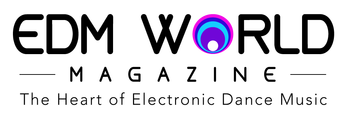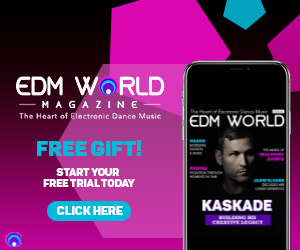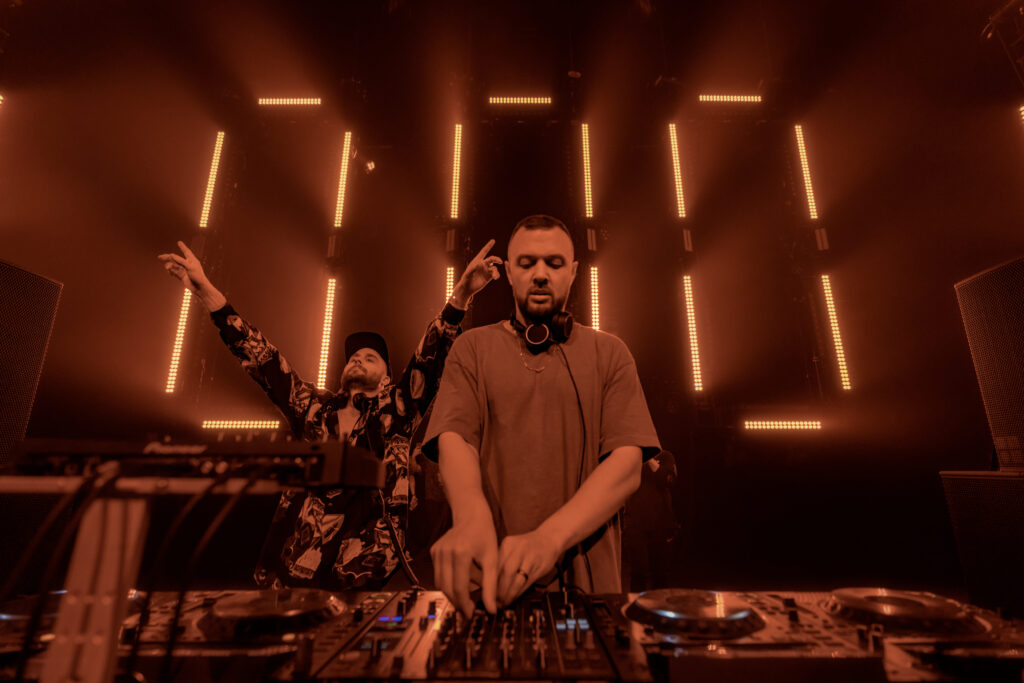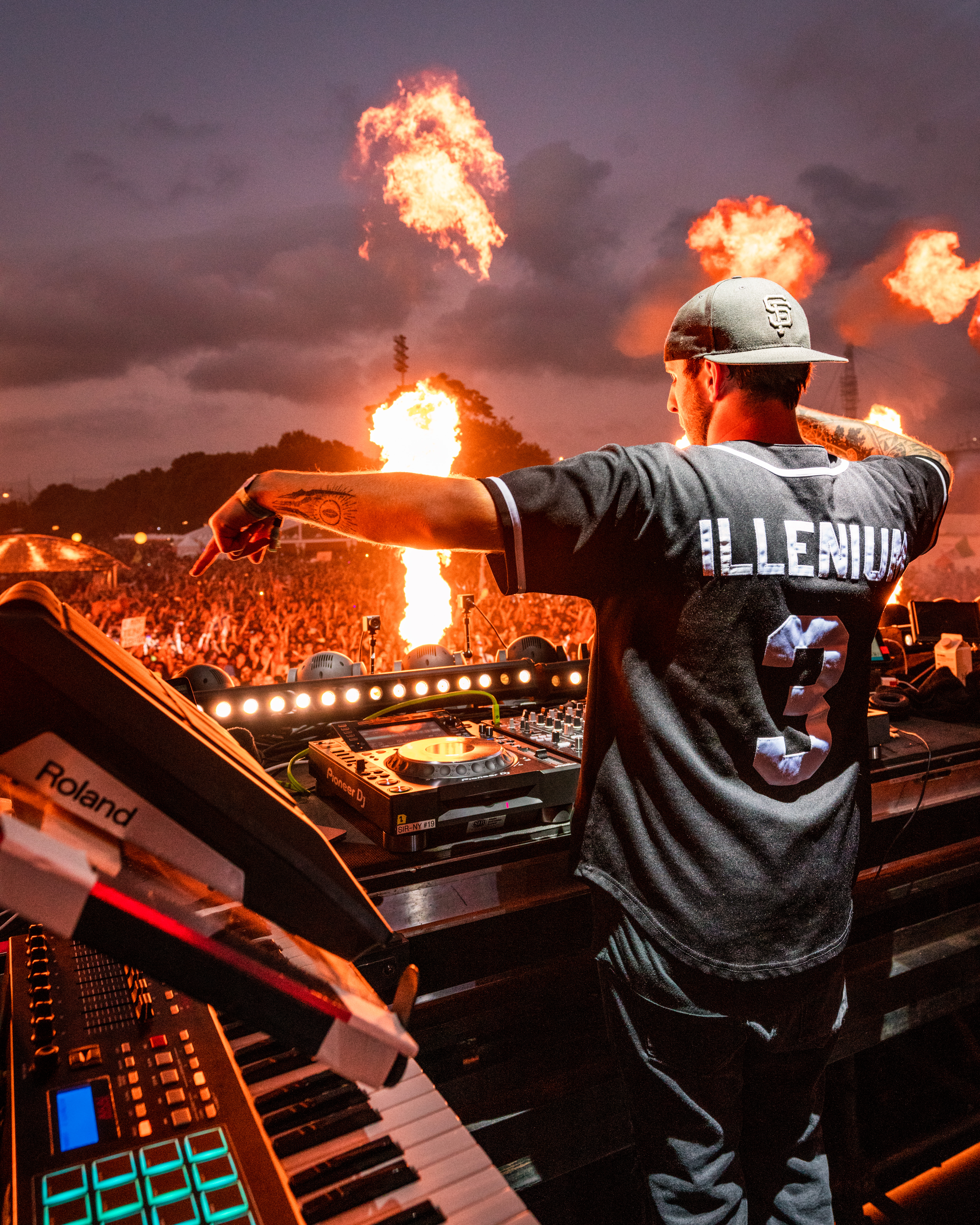
23 Feb The Ultimate Experimenter: Stephen Knight on his Uncharted Path and Unique Style
In This Article (Click on a section to quickly go to it)
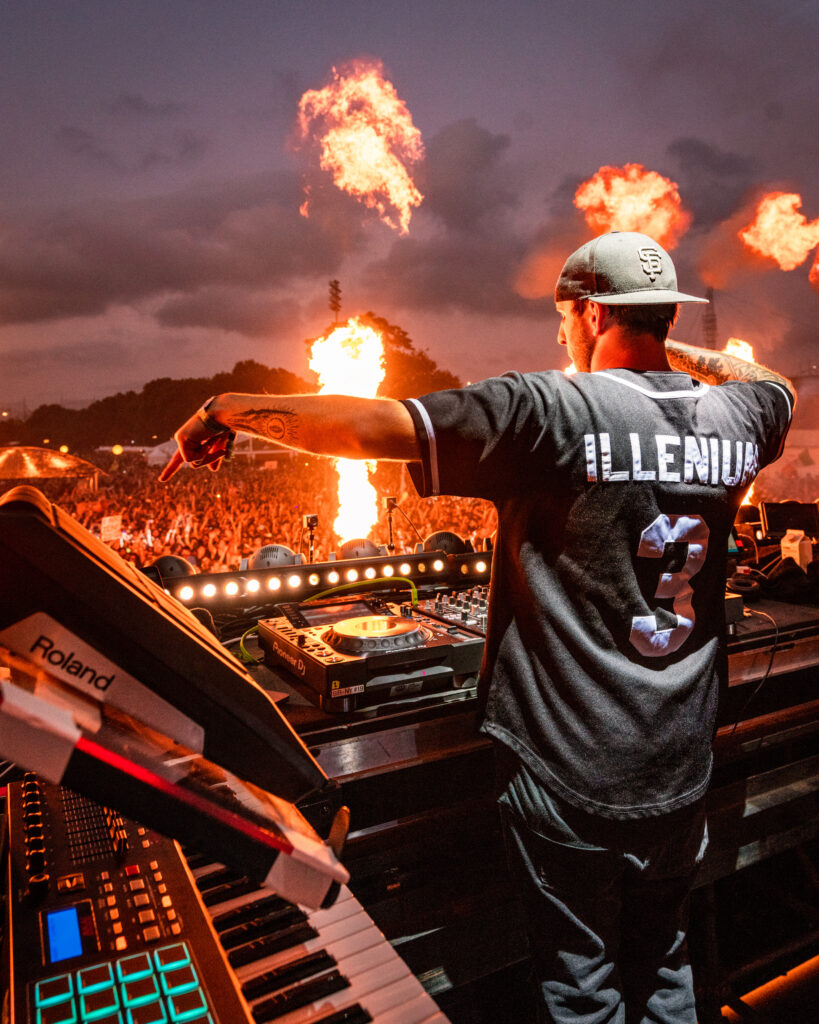 The Ultimate Experimenter: Stephen Knight on his Uncharted Path and Unique Style
The Ultimate Experimenter: Stephen Knight on his Uncharted Path and Unique Style
By Robb Ess
*This interview is older and was in our Issue 64 magazine.
Stephen Knight is a humble, energetic, self-motivated creator whose passions are experiencing life, traveling, meeting new people, and connecting with others on a personal level. Originally working in finance in Orlando, Florida, he made a YouTube video at home in late 2016 to teach and tell students how to save money — all in a fun and creative way — where he quickly realized his passion could evolve into something bigger.
With a no-frills website, his cold calling and emailing and word-of-mouth referrals quickly materialized into his own business where he now travels the globe to shoot festivals and shows in addition to lifestyle brands and more.
Based in Colorado, Stephen has captured the energy of many celebrated events such as EDC Mexico, EDC Orlando, Electric Forest, Lollapalooza, Bonnaroo, Okeechobee, Imagine, and Electric Zoo. He’s seized in time world-renown artists including Illenium, Chris Lake, Fisher, Big Wild, Rezz, Eprom, Phantoms, SNBRN, and Autograph.
A minimalist at heart, I took some time to sit down with him to learn about his unique editing styles, how he keeps grounded as a professional in an ever-changing environment, and what made him who he is today.
What inspired you to start your career in filmmaking and photography?
I started shooting when I was an intern at a finance firm in college and I realized it wasn’t what I wanted to do for the rest of my life. I always thought I would be a wealth strategist or certified financial planner.
At the time, around November 2016, I wanted to start with YouTube. I picked up a camera and started watching filmmakers and photographers do their thing and seeing the talent that was around already inspired me to create.
I didn’t have a goal with this at the time and it was more of something to do while I was working. I found that I was able to branch into my love of music so I tied that into my work. Finance will always be part of my life now that I own a business.
What was your journey like leading up to you deciding you wanted to get into photography?
The ability to travel and see the world inspired me. I see other like-minded people and I wanted to capture it and tell stories together. I just kept running with it.
How did you stay motivated when you were still honing your craft and learning the ropes of photography?
It comes from doing other things in life. Once you start small on some things and you realize the potential to grow it gives you the confidence to keep going. Some things are better than others and some have more of a natural eye. Once you get past the “shit” period though, it’s just a matter of time before something hopefully clicks as long as you’re self-motivated.
I’m a very stubborn, very driven person, and once I set my mind to something there is no telling when something is going to click. It’s just me, with no team to manage. The game I follow is just being efficient and knowing where to put out energy and when to conserve it. Just work smart — you should work hard at working smart.
What was the main reason you chose to leave Orlando, Florida, and move to Colorado for your career?
LA wasn’t really an option at the time and I knew that Florida didn’t have what I needed to grow both personally and professionally as a creative. I picked a few places on the map that I’d be willing to move like Austin, Seattle, and Denver, which was in the heart of the country.
I chose Denver because it was nice to be a 2-3 hour plane ride from anywhere or when traveling to other festivals and with DJs. There are a lot of clients coming in, and It’s a major city where many artists come. There are a lot of lifestyle brands here as well.
Be a good person that people want to communicate with and be around, and if you do good work, people will recommend you to others and it spreads from there. I still reach out to brands and clients today, but it’s obviously much easier when you have a brand built already.
How do you prepare to shoot a major music festival?
It’s different for festivals and artists. You have to know what type of festival it is, the layout of the festival, set times, and what artists and genres are playing. A lot of it comes down to what story you want to tell, the time of day, the energy, and how it’s set up. Once I get onto the festival grounds I already have an idea of what story I’m trying to tell. From there it’s using the lay of the land to my advantage and creating a better story on-site. I also use the atmosphere to build that story.
For artists, first and foremost, the most important thing is knowing their music. There are moments where you let shots just happen. If there is going to be a big moment or emphasis on certain drops, you have to know and plan in advance and capture it in a way that is pleasing for the artist. You let the energy dictate how much you become a director.
If the crowd is on a high, it’s something where the content comes to you and your composition and exposure are dialed in with the story that you have to tell. Sometimes you’ll pull 4-5 people to the side and direct them on something to do. The EDM crowd is usually pretty good. If you want them to do something crazy, they’re usually down to do it.
I usually travel pretty light with gear. I use three lenses, the 15, 35, and 50mm Canon and 100 macro. If I need to rent gear I’ll rent gear.
What are the biggest differences for you between shooting at large scale music festival venues versus small scale club shows? What is the biggest challenge for you each of them?
You really just have to know where you’re going. With a club show, you can cover more parts of the venue because it’s really just a confined space. You can be a little looser and move about easier. The challenge with clubs really is the lighting in comparison to festivals.
With festivals, some of the main stages are massive and you go from the middle of the crowd to the end of the stage, and it can eat up a lot of your time. You really have to know the lay of the land and prepare for it.
Having sometimes only a small window of time to work with to capture the shots you need, how do you strategize when these moments might happen and identify them?
If it’s something that you just have to shoot, it comes with experience. You shoot it enough times and you can tell when a drop will be bigger, especially when the artist starts to pump up the crowd and you feel the energy shift. You need to prepare your line of sight and capture something crazy.
It really comes down to experience with shows and your understanding of being dialed into locations and being a bit more of a roamer. I’m usually talking to the artists about what’s going on and I like to make sure that the artist and I are on the same page. I don’t want to freelance the whole set.
Sometimes the managers will tell you what songs are needed to capture. Usually, when I’m in the green room with the artist for the set I ask what points are the most important and is there anything to look out for. I usually am pretty good about opening that dialogue and communicating what is important versus what’s not. If you’re prepared during a shoot, the better the outcome. I just try to be as prepared as I can be.
What show or artist would be your dream come true to shoot and why?
Kaskade is the artist I want to shoot the most. I really vibe with his music. I’m able to come up with stories in my head and hopefully one day I’m able to bring those stories out into the open.
Who has been your favorite artist to shoot for thus far and why?
It’s a House genre. That’s about all I’ll say.
What is the biggest lesson you’ve learned so far in your career?
Be reliable, be professional and take your job seriously. At the end of the day, you’re still working. I am always grateful and never satisfied.
What helps you stay in a positive mindset and mentally fit while not being able to photograph shows?
Going to the gym and making sure that the physical aspect of my life is in check. I also work with other brands and individual people. Going into COVID was a time where, if it was ever time to change gears and expand your horizons, now is the time to do it. I was able to find some inspiration to keep me out there and keep shooting. I try to live a balanced lifestyle — go to the gym, do yoga, eat right, etc.
What is one of your favorite memories from your experiences while working as a photographer that brings you joy today?
It’s the people that I’ve met. It’s introduced me to a wide range of people from all over the world that I never would have met had I never picked up a camera. This one tool has opened up so many doors. My family emigrated to America from Jamaica and this has really just opened up the realm to a world of possibilities.
What are your signature style and shoot techniques?
Considering that I would consider myself a filmmaker rather than a photographer and coming from a film background, I would say that it’s making sure that everything has good lighting. That it’s pleasing on people. If it’s photo work, I try to keep them as simple as possible. I have a very modern, minimalistic lifestyle and clutter just doesn’t do it for me.
How long does it take you to edit your photos after a typical two-day festival and do you enjoy this part of the process?
It depends on what exactly I was doing at the festival. It could take a few hours, it could take a couple of days. I do love it. An image is captured on the field, but it’s also created in the editing room.
As long as your lighting composition is dialed in, I think your own personal style is what makes it dope. Exposure, somewhat composition, and certain things about photography are black and white. You give two people the same tools, and they could have a different outcome and that’s what makes it sick.
Just to get proficient at editing, it probably took me six months to a year. I pulled all-nighters and sacrificed a social life. I watched tons of YouTube videos. I’m learning skills every single day and I understand the tools, but there is always something to learn.
What’s your favorite hack to use while editing your photos and why?
I don’t really have one. I kind of just go about each and every film as its own piece and build them from scratch. I use presets every now and again that I’ve created myself and it helps streamline the process if I need something to be quick.
What piece of equipment is a must-have for you and why?
My camera, first and foremost, they’re my babies. The 15-35mm are the lenses I could not live without. Also, my gimbal, because I hate shaky footage, and batteries, and memory cards. Without those, you don’t have a shoot.
What is the one piece of equipment you’d love to purchase, but don’t already own? How would it impact your creativity specifically?
I would say the 70-200 lens for client work and brands, but honestly, lighting – filming, and photography are really just capturing and using light to your advantage, so this year will be a huge year of mastering light.
What advice do you have for someone who has a passion for photography and EDM looking to successfully submit and land a photo pass for an up and coming show?
Work on your craft, ask yourself why you want to do it, and reach out to people.
What are you focused on growing and improving upon the most as it relates to your career?
Continuing to create engaging films and images.
What is the next milestone you’d like to achieve in your career and how would it change the game for you?
I want to create a documentary and tell someone’s story in an engaging way. I want to be able to tell the most engaging documentary about someone’s creative process and life and tell that well.
Ultimately I’m just trying to leave the world a better place than the way I found it. I want to tell stories that resonate with people and create images that can make people feel things and hopefully inspire others to do things and go out and see the world.
